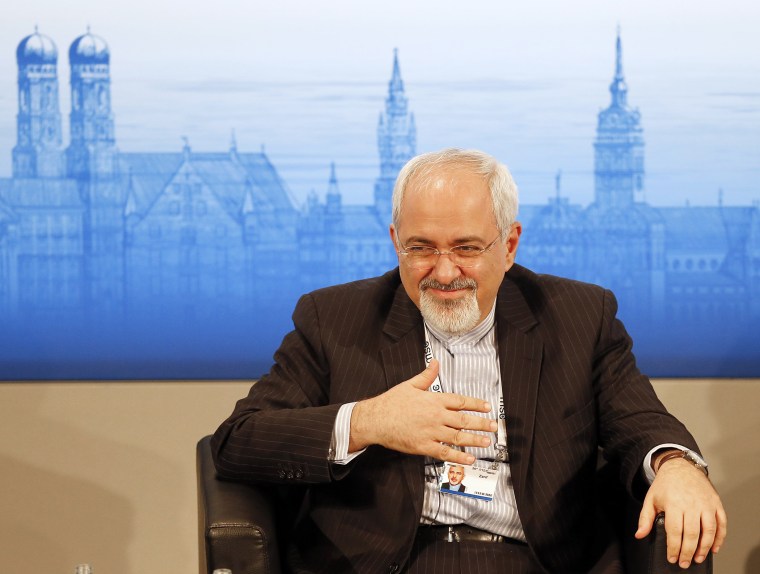A month ago, proponents of a bipartisan bill on new Iranian sanctions had reason to be optimistic. Despite White House arguments that the bill risked sabotaging delicate international diplomacy, the Senate bill had 59 co-sponsors. The question wasn't whether the bill would pass the Senate, but rather, whether it could garner a veto-proof super-majority.
The tide turned quickly. Last week, some of the Senate Democrats who had endorsed the legislation began backing off. And this week, supporters effectively shelved the entire bill.
Proponents of Iran sanctions have all but abandoned their search for a highly symbolic 60th co-sponsor who would give their bill a filibuster-proof majority and reverse the push against immediate action. The number of Democrats and Republicans on the bill has been stuck at 59 for more than three weeks, with the White House effectively locking up the Democratic Caucus with a threat to veto a bill it says could doom nuclear talks and precipitate war.
Even the list of 59 co-sponsors is misleading given recent developments. Sen. Joe Manchin (D-W.Va.) told MSNBC's Chris Matthews last week, "I did not sign it with the intention that it would ever be voted upon or used upon while we were negotiating,", adding, "[W]e've got to give peace a chance here and we've got to support this process." Soon after, Sens. Chris Coons (D-Del.) and Kirsten Gillibrand (D-N.Y.) said they, too, were prepared to give the Obama administration time to pursue a peaceful solution. By the end of the weeks, Sens. Ben Cardin (D-Md.) and Richard Blumenthal (D-Conn.) were also comfortable with a delay.
All are technically still considered co-sponsors, but it's clear that support for the sanctions bill has slowly collapsed. It's not that the legislation is poised for defeat; it's that the measure won't even get a vote anytime soon.
Proponents, meanwhile, haven't given up.
Sen. Lindsey Graham (R-S.C.), for example, told The Hill he's still hoping to find senators to endorse the effort, despite White House warnings. "We're working on that," he said.
Sen. Bob Menendez (D-N.J.), meanwhile, who wrote the bill and remains its chief sponsor, said he expects Iranians to abandon the diplomatic process and create new support for his legislation. "They can't help themselves," he said, adding, "In the end the Iranians will help me out."
Maybe, maybe not. Even skeptics of the sanctions bill have said if Iranian breaks the terms of the existing deal or scuttles diplomatic efforts in the coming months, Congress can always return to the issue. All the more reason, they argued, to wait and see what diplomatic efforts can produce.
In the meantime, Obama wanted some breathing room for the international negotiations. As of yesterday, that's exactly what he's earned.
